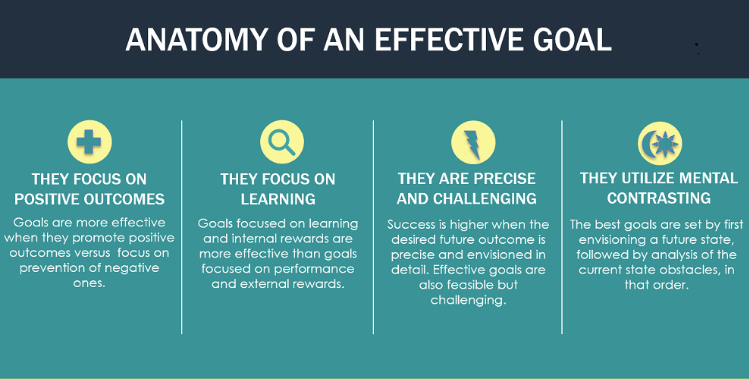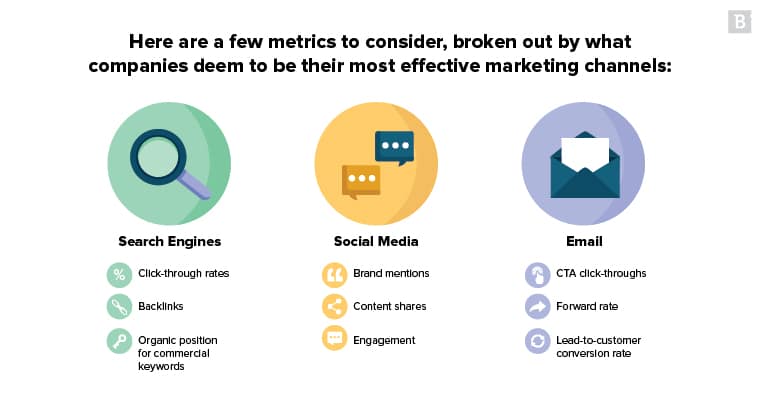If you’re investing substantially in marketing efforts for your business, it only makes fiscal sense to gauge how well that investment is working for you. When it comes to digital data, you can easily get lost in the metrics as the field is flooded with analytics tools and resources. Yet, if you’re only assessing conversions or your profit margins, you’re likely not properly evaluating your marketing strategies.
For instance, how do you really know what’s driving your results? Is it your recent email campaign? Social media? The SEO guru you recently hired? Taking a deeper dive into data can help you determine which digital marketing strategies are paying off, showing you where you might invest more and what you might need to fix.
Goals vs Benchmarks
When you’re trying to determine what you want to know about your strategies and in what ways they’re working or not working, it’s more important to focus on benchmarks more than goal setting. Goal setting is something many businesses are used to doing, but it becomes difficult to set goals for your digital marketing campaigns if you don’t review prior benchmarks.
For instance, how much growth is reasonable to expect? How can you set realistic goals without assessing your benchmarks?

So, if your business is new — or new to digital marketing — you’ll have to first set some benchmarks. How much traffic is going to your business website? What are your digital sales vs your brick-and-mortar sales, assuming you have them?
Once you have benchmarks to refer to, you have a jumping-off place from which to measure your growth. Here are some examples of data you’ll want to track from an initial benchmark to ensure improvement is going in the right direction:
- Email open and engagement rates
- Demographics
- Conversions
- Read time
- Traffic and referral traffic sources
- Paid searches
- Organic searches
- Social media engagement
Should you refer to all of these metrics to gauge your marketing efforts? Why not? Given the range of data analysis tools available today, it makes sense to examine the various channels associated with your digital marketing plan even if only on a monthly basis.
How Does Data Analysis Help You?
Knowing the data associated with your digital marketing efforts is one thing, but using that data to tweak your campaigns (or drastically alter them when needed) is where metrics drive actions.
Imagine you are paying someone to manage your social media campaign and suddenly, you’re reviewing traffic to your website and you’re getting a surge in visits via Facebook. Nothing from Twitter or LinkedIn, but FB is taking off.
You can take yourself out to lunch to congratulate yourself on your new hire, or you can set up a meeting with your social marketer to discuss the following questions:
- How might the company mimic the success of one social channel on another?
- What types of posts are driving the most traffic?
- What posts are not hitting the mark and how can they be revised?
- What is the next step in the strategy?
- What can be done with more Facebook ad dollars and is it worth the investment?
Your business should be relying on data in order to make the next round of decisions. If your plans are not building on earlier benchmarks, you don’t necessarily want to throw more money into your campaign before you’re aware of what’s working and what isn’t.
Use the data in order to invest your marketing dollars wisely and make the smart decisions you need to drive your results forward.
What Tools Should You Use to Measure Data?
So, this is where it gets a bit tricky. Each ad platform you use is likely to have its own built-in attribution system. This means that the metrics you’re gleaning from the platform are likely skewed, telling you a story from its perspective when what you really need is objectivity.
For example, the ad platform you may be using could be recording purchases and then ‘trying’ to tie them back to an ad that appeared on that platform. In fact, Facebook and Google will not provide insights about traffic sources from other platforms at the ads level. So, you’ll need to check separate attribution tools for the platforms you are using.

Google Analytics should be part of your data analysis portfolio. It’s your go-to tool for investigating metrics. However, there are hundreds of tools available online that you can use to track digital marketing efforts.
While it may seem overwhelming, you can actually put together a list of resources with an afternoon’s worth of research. What you’re likely to learn is that Google Analytics is ideal for tracking lead generation. However, there are other tools that are popularly used to monitor social media activity and engagement, tracking email, monitoring your competition, and managing data regarding digital ads.
Some of these tools, of course, are going to cost you, but you can build the cost of the most effective tools into your digital marketing budget. If you don’t invest in these resources, you’re going to be left in the dark in some areas of your marketing initiatives and that’s not serving your goals.
Which Channels Drive Conversions?
Once you have all of your data and can examine it, you’ll be able to determine what channels are driving the most conversions. Of course, that might not be your goal when it comes to social media. Perhaps you’re investing in Facebook to build brand recognition or drive users to your company blog. That’s when your goals come into play; you can begin to differentiate what channels are doing precisely what for your business.
Of course, most businesses are understandably concerned about conversion rates and where their best customers are coming from. Social media may be sending traffic to the website, but it could be your SMS campaign that’s driving paying customers to your business website — people who are actually buying your products or services. It might be your paid ads or your email campaign.
Certainly, businesses know why there’s value in understanding this type of information. If a business hits a slump and needs to quickly make bank, it needs to turn to its power hitters — its most reliable channels for quickly boosting sales. If most sales come from email lists, then it makes most sense to invest in that channel, especially when marketing dollars are limited.
Wrapping It Up
Business owners may or may not be comfortable examining digital marketing data and using the various tools available to determine growth. Some businesses rely on key staffers to manage this information while others turn to outside companies for help in this area.
As long as you’re getting accurate data you can rely on to make informed decisions about marketing your business, you can take any of these routes. There’s no other way to ensure that your marketing efforts are really driving the results you want to achieve.






2 Responses